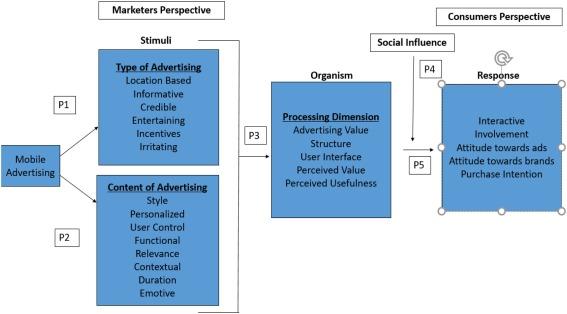Future-Ready Skills: Preparing Students for Tomorrow’s In-Demand Jobs
Introduction: Why Future-Ready Skills Matter
As technology rapidly transforms the workforce, the demand for future-ready skills is higher than ever. Automation, artificial intelligence, globalization, and remote work are redefining what it means to be employable. Preparing students for tomorrow’s in-demand jobs is a crucial duty for educators, parents, and policymakers. In this complete guide, we explore the essential skills students need, emerging job trends, educational strategies, and practical tips to build a future-ready generation.
Emerging Job Market Trends
The job landscape is in constant flux, with new roles quickly replacing outdated ones. According to recent reports by the World Economic Forum, over 85 million jobs may be displaced by shifts in the division of labor between humans and machines by 2025, but up to 97 million new roles could emerge. Here are some trends shaping the future of work:
- Digital Economy expansion: The demand for tech-savvy professionals in AI, cloud computing, cybersecurity, and big data continues to surge.
- Sustainability and Green Jobs: As organizations move toward sustainability, eco-friendly careers are on the rise, including renewable energy engineers and environmental consultants.
- Healthcare Innovation: Telemedicine, biotechnology, and mental health services are driving new career prospects in healthcare.
- Remote and Hybrid Work: Flexible work arrangements require self-directed, adaptable staff skilled in collaboration across digital platforms.
Top future-Ready skills for Students
To prepare for the changing workforce, students must develop both technical skills and soft skills.Here are some of the most critical future-ready skills for success in tomorrow’s in-demand jobs:
- Critical Thinking & Problem Solving
- Creativity & Innovation
- Digital Literacy & Technical Skills
- Emotional Intelligence (EQ)
- communication & Collaboration
- Adaptability & Resilience
- Leadership & Social Influence
- Data Analysis & Interpretation
- Coding & Programming
- Entrepreneurial Mindset
These competencies go beyond textbook knowledge, preparing students to thrive in fast-changing, tech-driven environments.
Benefits of Fostering Future-Ready Skills
- Increased Employability: Students stand out to employers seeking well-rounded, adaptable candidates.
- Resilience in Uncertain Markets: Versatility helps students navigate shifting career landscapes.
- Lifelong Learning: Students become proactive learners, staying relevant as industries change.
- Personal Growth: Fostering soft and technical skills leads to greater self-confidence and satisfaction.
Practical Tips: How to Prepare Students for Tomorrow’s Jobs
Building future-ready skills requires intentional strategies in both school and at home. Empower students with these actionable approaches:
1.Integrate Project-Based Learning
Encourage hands-on learning through real-world projects. This approach enhances critical thinking,teamwork,and problem-solving abilities.
2. Embed Digital Literacy Across Subjects
Teach students to use digital tools—coding, data visualization, research, and cybersecurity—across all disciplines.
3. Foster Emotional Intelligence
Help students develop empathy,self-awareness,and social skills through group activities,discussions,and reflective exercises.
4. Promote Growth Mindset
Instill the belief that skills and intelligence can be developed through effort, helping students embrace challenges as opportunities.
5. Encourage Career Exploration
Use mentorship programs, internships, and exposure to diverse industries to broaden students’ career horizons.
6. Teach Financial and Entrepreneurial Skills
inspire initiative by teaching budgeting, investment, innovation, and basic business concepts.
Case Study: Future-Ready Education in Practice
Singapore’s Education System is lauded globally for producing future-ready graduates. Schools there prioritize holistic learning and future skills by integrating:
- Problem-based and experiential learning models
- Digital literacy and coding from an early age
- Collaboration with tech industries for internships
- Continuous teacher training on emerging skills
As a result, Singaporean students consistently top global rankings for adaptability, innovation, and employability in tech-centric fields.
First-Hand Experience: Voices from Today’s Students and Educators
“Participating in a robotics club changed my approach to learning. It wasn’t just about programming robots, but about solving real-world problems and working as a team.Now,I’m more confident to try new things and adapt quickly.”
— Priya, High School Student
”Embedding future-ready skills into our curriculum—notably critical thinking, digital expertise, and communication—has propelled our students forward. They aren’t just test-ready, they’re work-ready.”
— Mr. Russell, middle School Principal
Conclusion: Building a Future-Ready Generation
The workplace of tomorrow demands that today’s students become agile, resilient, and proactive learners.Equipping them with future-ready skills such as digital literacy, critical thinking, and emotional intelligence ensures they are not just prepared for tomorrow’s in-demand jobs but are positioned to shape a better future. by embracing innovative teaching methods,hands-on experiences,and continuous learning,we pave the way for a generation empowered to thrive in any landscape.
Ready to future-proof your school or classroom? Start today by integrating these essential skills, nurturing curiosity, and celebrating every step toward lifelong learning.

